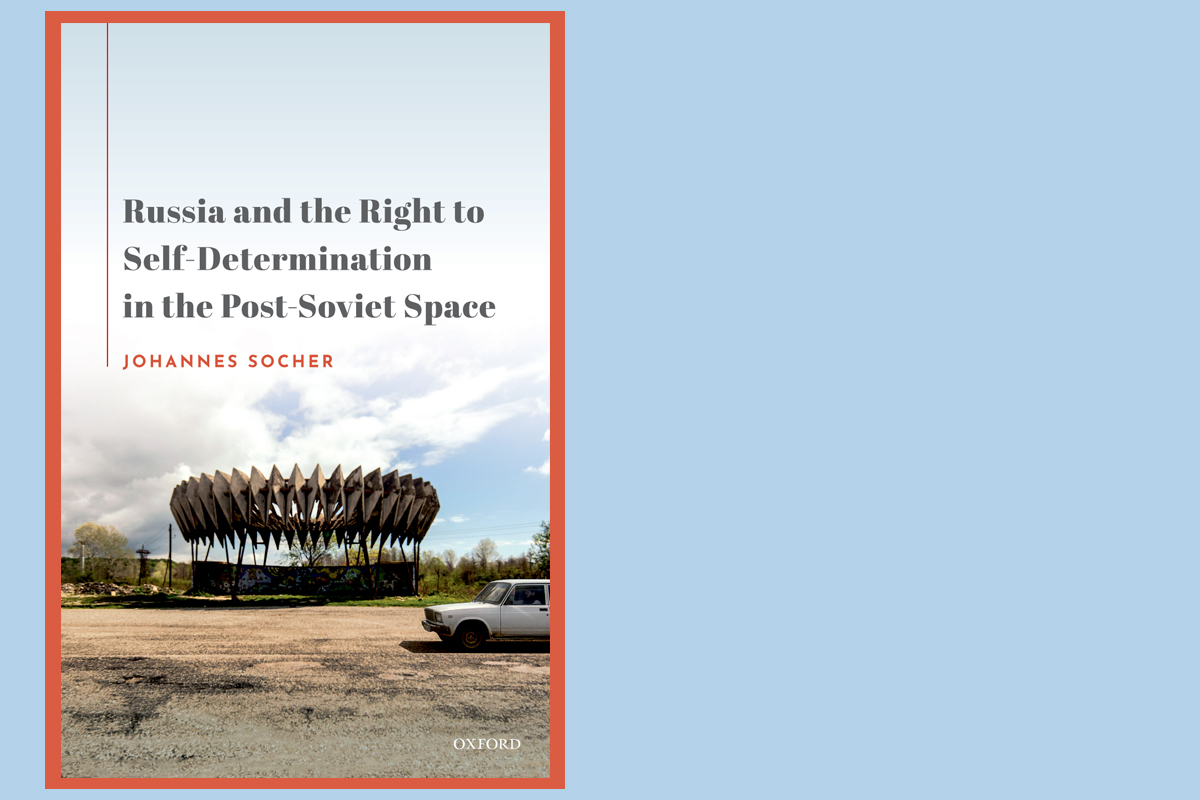Lingering at the Borders of an Argument
Introducing the Book Review Symposium on Russia and the Right to Self-Determination in the Post-Soviet Space
Any claim to the Right to Self-Determination is an exercise in reconsidering “belonging” under international law. Akin to a prism, it draws our attention to the contact zones between international and domestic law, to mobilisations and exploitations of claims to sovereignty, to renegotiations of allegiances.
Fathoming how far arguments can be pushed in this context does not merely occur at the outer edges of international law. How those cases are being argued, what kind of arguments we might consider as plausible reflects back onto the very fabric of international law, instigating what might first appear as slight variations but ultimately leads to change. Any argument made in the context of self-determination invites a reconsideration of relationship between the self and the community; two notoriously vague and farouche concepts which have always and continue to invite sophisticated scholarly debates (inter alia Peters, 2014; Peters & Sparks (eds.), 2024; Paulus, 2001; Crawford, 2006 and more recently, Hakimi, 2017).
Telling its very own story of this relationship, each claim to the Right to Self-Determination is thus the making and (re)imagination of meaning of international community. How we narrate community, the “something” we have or ought to have in common is of salience, as Fleur Johns recently showed in her 9th Annual T.M.C. Asser Lecture titled ‘Connection in a divided world: Rethinking ‘community’ in international law’ in the Peace Palace in the Hague on 25 April 2024.
In contemporary discourse within our discipline, moreover, it has become commonplace to regard international law as an argumentative practice (Koskenniemi, 2007). This perspective alone, however, tells us little about how arguments presented in the language of law become at times fiercely contested or even completely ignored. The reasons are multilayer, contingent and rooted in intricacies of (colonial) histories. Regional approaches to international law and comparative international law are flourishing in an attempt to shed light on this matter (Roberts, 2017), highlighting the vast amount of future scholarly work. Similarly, the argument of legal traditions might illuminate this question, although the very idea of tradition itself is at times turns out to be tricky one (Yannakakis, 2023). When, then, does legal imagination and the bricolage of arguments of one party become unacceptable and perceived as nothing but politics by the other. While international law, like domestic law, serves to enable conflict (Hakimi, 2017), does the ideal of peace through law ultimately reveals itself as nothing but cynicism (Baade et al. (eds.), 2021)?
Against this backdrop, we are particularly delighted to publish a book review symposium on Johannes Socher’s book ‘Russia and the Right to Self-Determination in the Post-Soviet Space’. In their engagement with his book our contributors and the author are not only tracing and discussing different stories and variations of how the relationship between the self and community is constructed in claims to self-determination in the very particular setting of the post-soviet space. More, their investigation of each other’s argumentative practices, different views on what to make of legal traditions and legal imaginations are intrepid and attentive at the same time. They linger together and at the same time apart at the borders of the argument and invite us to think with them about what to do in that space.
Johannes Socher’s exploration of the distinct post-soviet space is the starting point of our symposium. We are especially delighted to announce that two chapters of the book selected by the author, ‘Russia, the Right to Self-Determination’ (chap. 3) and ‘Post-Soviet Russian Scholarship on Self-Determination’ (chap. 5), are now available Open Access and will remain so until 13 September 2024 (courtesy of Oxford University Press).
Polina Kulish and Tero Lundstedt’s two-part review (will be) published on Völkerrechtsblog. Part I critically assesses the conceptual framing of Socher’s book, examining it against the contrasting backdrop of ‘understanding’ in the context of Eurocentrism and mestizo international law, concluding their first part with a specific focus on the case of Crimea. Part II analyses Russian state practice in the area of self-determination by exploring continuities and discontinuities in Soviet policy, with particular attention to the role of academic institutions. Finally, the reviewers discuss the book in light of recent developments since its publication.
Bill Bowring’s, recently published review article ‘Zombie Self-determination?’ (Brill), critically examines the question posed by Johannes Socher as to whether there was ever a state practice of self-determination in Russia after the collapse of the Soviet Union. Against this background, and with particular respect to the concepts of ‘sovereignty’, ‘secession’ and ‘annexation’, the review also situates the monograph within the current field of research. We are grateful to Brill for supporting our open-access efforts and permitting all of our readers and listeners to access Bill Bowring’s contribution published in the Review of Central and East European Law (RCEEL) free of cost for the time being.
The review symposium at Völkerrechtsblog concludes with a response of Johannes Socher to all three contributions.
Enjoy reading!

Christian R. J. Pogies is a Doctoral Student in the Department Historical Regimes of Normativity (Blog: Legal History Insights) at the Max Planck Institute for Legal History and Legal Theory. He is an editor at Völkerrechtsblog.

Anna is a PhD candidate at Humboldt University Berlin and holds a scholarship from the Heinrich Böll Foundation. She is currently working as a Research Fellow at the Max Planck Institute for Comparative Public Law and International Law with the humanet3 research project, which is based in Berlin at the Centre for Human and Machines at the Max Planck Institute for Human Development.
